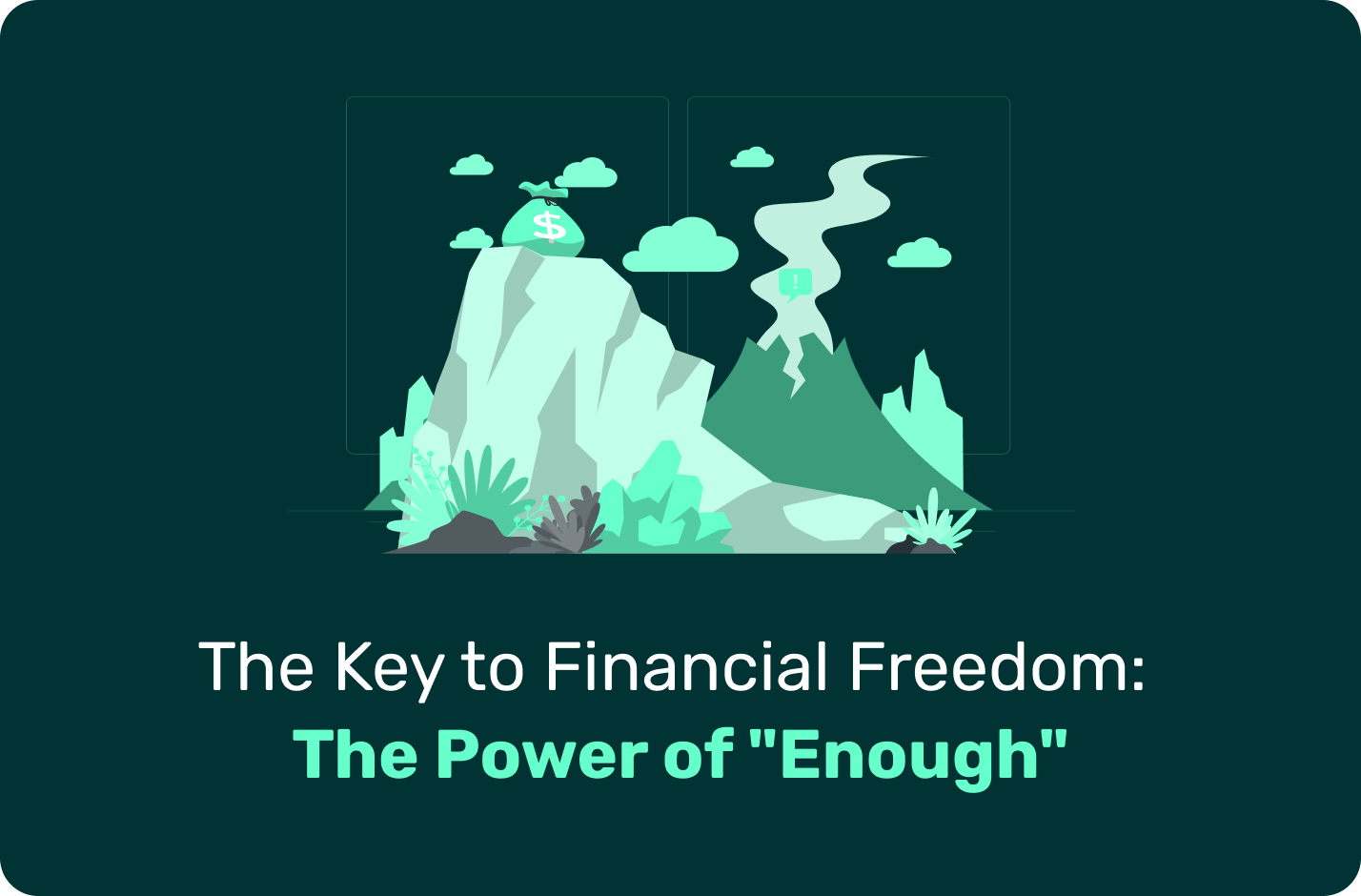In today’s fast-paced and consumer-driven world, the concept of “enough” often seems elusive. We’re bombarded with messages that encourage us to constantly strive for more – more money, more possessions, more success. While ambition and striving for improvement are essential, one of the most important financial lessons we can learn is the ability to recognize and be satisfied with “enough.”
Redefining Success
Financial success is often measured in terms of wealth, assets, and income. Society tends to glorify those who accumulate vast fortunes or acquire extravagant possessions. However, it’s crucial to understand that true financial freedom is not solely determined by the size of your bank account or the number of luxury items you own.
The journey to financial freedom begins with a shift in mindset. Rather than continuously chasing more, start by redefining your definition of success. Ask yourself, “What does ‘enough’ mean to me?” Is it having a comfortable home, being able to travel occasionally, or ensuring a secure retirement? Understanding your personal definition of “enough” is the first step towards financial contentment.
The Pitfalls of Perpetual Want
Constantly moving the goalpost of what “enough” means can have detrimental consequences for your financial well-being. Here are some common pitfalls of not being satisfied with “enough”:
1. Never-ending Stress
Chasing an ever-elusive financial goal can lead to chronic stress and anxiety. The pressure to earn more, buy more, and keep up with the Joneses can take a toll on your mental and emotional health.
2. Debt Accumulation
When “enough” is always just out of reach, people may resort to borrowing money to maintain a certain lifestyle. This can result in a cycle of debt that becomes increasingly difficult to break.
3. Missed Life Experiences
Focusing solely on accumulating wealth may cause you to miss out on life’s experiences. Being overly frugal or working excessively can prevent you from enjoying the present moment.
4. Fragile Financial Security
Without a clear understanding of what “enough” means to you, it’s easy to fall into the trap of overspending or undersaving. This can leave you financially vulnerable in times of unexpected hardship.
The Freedom of Contentment
On the other hand, embracing the concept of “enough” offers numerous benefits:
1. Reduced Financial Stress
By defining your financial goals and being satisfied with “enough,” you can reduce stress and enjoy greater peace of mind.
2. Debt Reduction
When you’re content with what you have, you’re less likely to accumulate unnecessary debt. This can lead to greater financial stability.
3. Enhanced Well-Being
Focusing on experiences, relationships, and personal growth, rather than material possessions, can lead to a more fulfilling and meaningful life.
4. Increased Savings
Having a clear financial goal and being content with “enough” can make it easier to save and invest for the future.
Practical Steps to Embrace “Enough”
- Define Your “Enough”: Take time to reflect on what “enough” means to you. Create a clear vision of your financial goals and priorities.
- Set Boundaries: Establish boundaries for your spending and lifestyle. Determine what you’re willing to prioritize and what you’re willing to forego.
- Budget Wisely: Create a budget that aligns with your “enough” goal. Allocate resources to your priorities and avoid unnecessary expenses.
- Practice Gratitude: Cultivate a sense of gratitude for what you already have. Recognize the value in the present moment and the people in your life.
- Revisit Your Goals: Periodically review your financial goals and adjust them as needed. Life circumstances change, and your definition of “enough” may evolve over time.
Remember that financial freedom is not about accumulating endless wealth; it’s about achieving a balance between your financial goals and your overall well-being. By embracing the power of “enough,” you can pave the way to a more content, secure, and fulfilling financial future.

